The views expressed in our content reflect individual perspectives and do not represent the authoritative views of the Baha'i Faith.
Previously in this series, we discussed a potential first step in the fulfillment of the Baha’i prophecy that tribal peoples in the Americas “will become so illumined as to enlighten the whole world”:
Attach great importance to the Indigenous population of America. … Likewise, these Indians, should they be educated and guided, there can be no doubt that they will become so illumined as to enlighten the whole world. – Abdu’l-Baha, Tablets of the Divine Plan, p. 33.
That first step – establishing spiritual parity between Baha’i and Indigenous sacred traditions as equals – requires a deep recognition of the core Baha’i principle of the unity of all religions:
The purpose of religion as revealed from the heaven of God’s holy Will is to establish unity and concord amongst the peoples of the world; make it not the cause of dissension and strife. The religion of God and His divine law are the most potent instruments and the surest of all means for the dawning of the light of unity amongst men. – Baha’u’llah, Tablets of Baha’u’llah, p. 129.
Today the one overriding need is unity and harmony among the beloved of the Lord, for they should have among them but one heart and soul and should, so far as in them lieth, unitedly withstand the hostility of all the peoples of the world; they must bring to an end the benighted prejudices of all nations and religions and must make known to every member of the human race that all are the leaves of one branch, the fruits of one bough. – Abdu’l-Baha, Selections from the Writings of Abdu’l-Baha, p. 277.
Once this step is achieved, the Indigenous peoples of the Americas and the Baha’is can productively consult together on an equal footing. In this continuing dialogue between Chris Buck and Lakota Baha’i Kevin Locke, let’s explore the next three steps in this process.
2. Parity in Consultation
Q: Kevin, would you please tell us your thoughts about the spiritual and social implications of achieving parity in consultation between Baha’is and Indigenous peoples in the Americas? Of course, since many Indigenous people are Baha’is, when we say Baha’i and Indigenous, we want our readers to understand that these two groups overlap, since many Indigenous people belong to both groups. Given that fact, how do you think more Baha’i and Indigenous consultation can and should occur on an equal basis?
A: Reviewing historical documentation on the interactions between Indigenous peoples and colonists, we can see that, in every instance, the Indigenous peoples invoked the principle of spiritual unity. They would always kindle the sacred fire and beseech God to bend low and give ear and bless the meeting, so that truth and divine abundance would ensue. Parity in consultation has ever been a requirement for progress and release of the pent-up divine blessings. Unfortunately, in the past, this goodwill, based on such good-faith consultation, was reciprocated with deceit and betrayal by the colonizers. Now, in this new day, as the Baha’i teachings define it, the consultative process must be transformed and placed firmly on a heavenly foundation of parity and love — that is, of equality, mutual respect, and true friendship. This takes dedication, work and patience. In fact, it resembles how Shoghi Effendi, the Guardian of the Baha’i Faith, described the reconciliation Baha’is should endeavor to create between black and white people:
A tremendous effort is required by both races if their outlook, their manners, and conduct are to reflect, in this darkened age, the spirit and teachings of the Faith of Baha’u’llah. Casting away once and for all the fallacious doctrine of racial superiority, with all its attendant evils, confusion, and miseries, and welcoming and encouraging the intermixture of races, and tearing down the barriers that now divide them, they should each endeavor, day and night, to fulfill their particular responsibilities in the common task which so urgently faces them. – Shoghi Effendi, The Advent of Divine Justice, pp. 39-40.
3. Parity in Social Action: Baha’is and Indigenous Peoples as Equal Partners
Q: What’s the next step, Kevin?
A: Step Three involves Baha’is and Indigenous peoples becoming equal partners in social action. Baha’is have a clear mission — to unify the world and to make this world a better place. This mission does not make Baha’is missionaries. Instead, it asks each Baha’i to become an ambassador of the Baha’i universal teachings of harmony and unity among all peoples.
Q: So how can Baha’is and Indigenous groups best work together? If there is agreement to go forward with any initiative, can Baha’i and Indigenous groups work together as equal partners?
A: Yes, now that we are equipped with the mandate and practical tools for individual and societal transformation, we must transcend all of the old, outworn and destructive paradigms and go forward, together, with parity, vision and resolve. That way we can initiate and carry out social action projects to enhance and advance the quality of Indigenous community life across the Americas, throughout the far reaches of the Western Hemisphere.
4. Parity in Education: Baha’i and Indigenous Models to Enlighten the World
Q: Can you explain the final step, Kevin?
A: Step Four – parity in education – has tremendous spiritual and social implications. Through this kind of parity – equal and collaborative participation in the literary, cultural, moral and spiritual education of Indigenous children and youth (as well as adults), Baha’i and Indigenous groups can develop social models to enlighten the world.
Abdu’l-Baha, over 100 years ago, famously asked the Baha’is to:
Attach great importance to the Indigenous population of America. … Likewise, these Indians, should they be educated and guided, there can be no doubt that they will become so illumined as to enlighten the whole world. – Tablets of the Divine Plan, p. 33.
Notice that the conditional verb, “should,” occurs before the words, “educated and guided.” Education and guidance are key to the fulfillment of Abdu’l-Baha’s prophecy of the future destiny of the Indigenous peoples of the Americas, which is also a social mandate. In other words, Abdu’l-Baha gives instructions — a social formula, if you will — as to how we can help hasten the time when the fulfillment of this prophecy will surely come to fruition. This education and guidance must be entirely based on the divine teachings.


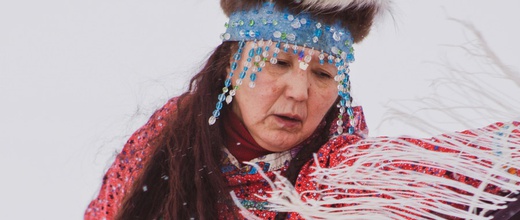

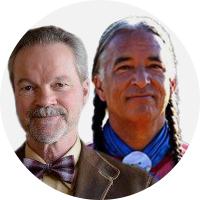
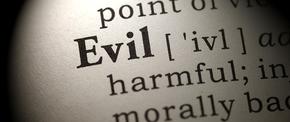
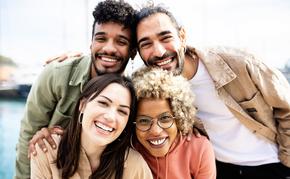
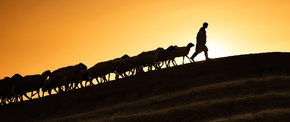









Comments
Sign in or create an account
Continue with Facebookor